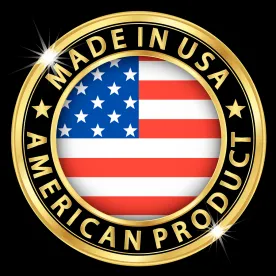If offering American-made products is part of your brand identity or marketing strategy, you'd better make sure they were actually made stateside before you label them as such. Otherwise, you may find the Federal Trade Commission (FTC) isn't buying what you're selling. The latest two country-of-origin cases, involving hockey puck producer Patriot Puck and recreational equipment sister companies Sandpiper and PiperGearUSA, join a growing line of cases the FTC has brought over deceptive homegrown claims.
Four New York companies - Underground Sports Inc., Hockey Underground Inc., Ipuck Inc., and Ipuck Hockey Inc - trading as Patriot Puck made an own-goal when they advertised hockey pucks on the Patriot Puck website and elsewhere online as "Made in America," "Proudly Made in the USA," "100% American Made!" and "The only American Made Hockey Puck!" The company even went so far as to wrap its pucks in an image of the American flag. The reality, according to the FTC, is that Patriot Puck's products are wholly imported from China. Patriot Puck and its subsidiaries imported more than 400,000 standard-weight pucks from China since 2016.
Similarly, Sandpiper and PiperGearUSA claimed on websites, in marketing materials, and on packaging labels that nearly all their products were made in the USA when 95% of Sandpiper's products and 80% of PiperGearUSA's goods are imported or contain significant imported materials. Worse, according to the FTC's complaint, the companies obscured country-of-origin information on the back of wallet tags an attempt to deceive consumers and inserted cards that falsely stated the wallets were USA-made.
Under the terms of the proposed consent orders with Patriot Puck and its owner, and Sandpiper and PiperGearUSA, all parties are prohibited from making misleading or deceptive statements. Further, they are barred from making Made in the USA claims unless they can show that:
- The product's final assembly or processing of the product occurs in the United States, all significant processing occurs in the United States, and all or virtually all ingredients or components of the product are made and sourced in the United States; or
- A clear and conspicuous qualification appears immediately adjacent to the representation that accurately conveys the extent to which the product contains foreign parts, ingredients or components, and/or processing; or
- For a claim that a product is assembled in the United States, the product is last substantially transformed in the United States, its principal assembly takes place in the United States, and its U.S. assembly operations are substantial.
Comments on the two cases may be submitted to the FTC until October 12, 2018.
In addition to the proposed settlements with Patriot Puck and Sandpiper and PiperGearUSA, the FTC finalized its settlement with Nectar Brand LLC over charges that Nectar falsely advertised mattresses imported from China as American-made. As we previously reported, the FTC also went after Bollman Hat Company for making similarly unsubstantiated claims earlier this year. It is important to note that the FTC's rules about "Made in the USA" claims differ from Tariff Act rules on country of origin disclosures for imported goods. While that can sometimes be a source of confusion that affects how companies make "Made in the USA" claims, it did not appear to be at issue here. Because claims about U.S. origin continue to draw the FTC's attention, it remains important for businesses that advertise their products are "Made in America" to understand the difference and follow rules to ensure that promises about homegrown origin stand up to the FTC's scrutiny.





 />i
/>i
